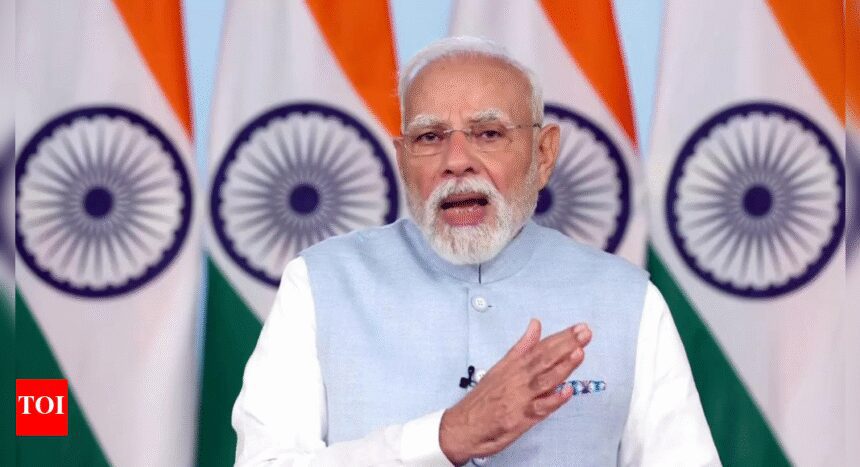‘GST Bachat Utsav’ Launches: Modi Introduces Reforms for Middle Class and Farmers
NEW DELHI: Following Prime Minister Narendra Modi’s address about the Next Generation Goods and Services Tax (GST) reforms, leaders from the Bharatiya Janata Party (BJP) and National Democratic Alliance (NDA) commended his initiatives. However, opposition parties criticized the reforms, labeling them insufficient and delayed.
Congress President Mallikarjun Kharge demanded an apology from the Modi government for imposing GST on essential items such as lentils, rice, grains, and medical treatments. “After consuming nine hundred mice, the cat now sets off for Hajj. Instead of adopting the Congress’s simple and efficient GST, your government imposed a ‘Gabbar Singh Tax’ with nine different slabs, collecting over Rs 55 lakh crores in eight years,” Kharge asserted. He emphasized that the government is now merely offering a “sticking plaster” after causing significant challenges for the public.
Congress leader Jairam Ramesh pointed out that the party has long argued that GST has served as a “Growth Suppressing Tax” and has called for a revised GST framework since July 2017. “The Prime Minister’s claims of sole ownership of the amendments made to the GST regime by the GST Council—a constitutional body—are misleading,” Ramesh stated.
The Aam Aadmi Party (AAP) also expressed their dissatisfaction. AAP leader Saurabh Bharadwaj noted that PM Modi should have addressed issues such as the increased fees for H-1B visa applicants imposed by the United States. “It seemed that PM Modi would discuss such pressing matters, but instead, he presented outdated GST news. His timing, addressing the nation at 5 PM instead of the usual 8 PM, coincided with the India vs Pakistan match, indicating a disconnect with public sentiment,” Bharadwaj remarked.
In contrast, BJP leaders, including Uttar Pradesh Deputy Chief Minister Keshav Prasad Maurya, celebrated the reforms. Maurya stated, “The one nation, one tax GST was implemented, and now we have introduced the GST budget festival, allowing the poor to afford what they couldn’t before. This initiative aims for a self-reliant, developed India.”
Janata Dal United spokesperson Rajiv Ranjan Prasad expressed optimism about the impact of the reforms, stating that the announcement would bring joy to citizens ahead of the festival season.
Prime Minister Modi characterized the new GST reforms, effective from September 22, as a “double bonanza” for the underprivileged, neo-middle class, and middle class. He indicated that these changes would ease the cost of living and enhance aspirations for many. “From tomorrow, there will only be two tax slabs of 5% and 18%. Essential items like food, medicines, soap, and insurance will either be exempt or taxed at just 5%,” Modi explained. He highlighted that nearly 99% of products previously taxed at 12% have been shifted to the 5% slab, aimed at making daily goods more affordable.
The Prime Minister also noted a significant socio-economic shift, stating that 25 crore individuals have risen out of poverty in the last decade, forming a vibrant “neo-middle class.” He emphasized that the reforms would facilitate the realization of their dreams, including home ownership and travel.










